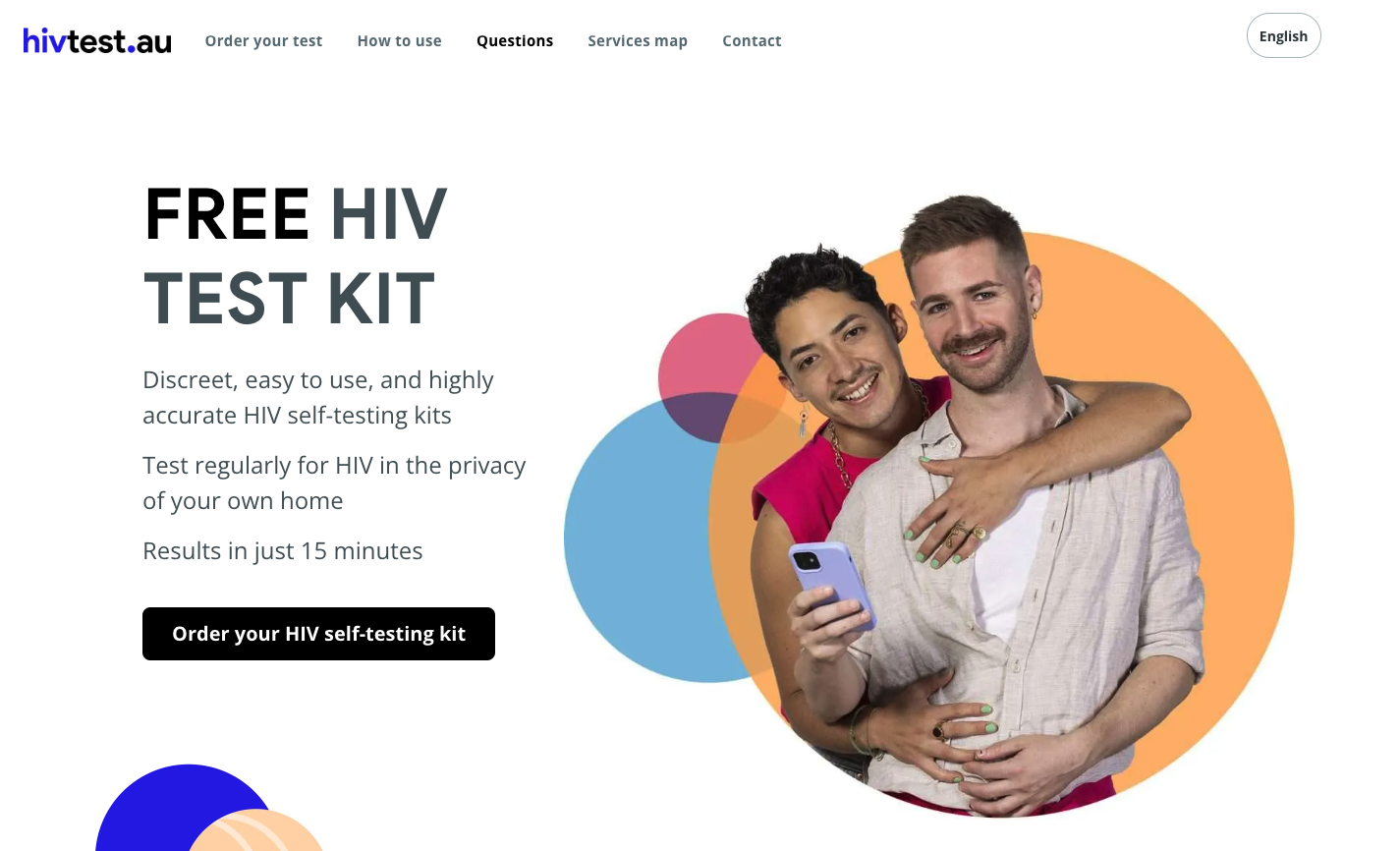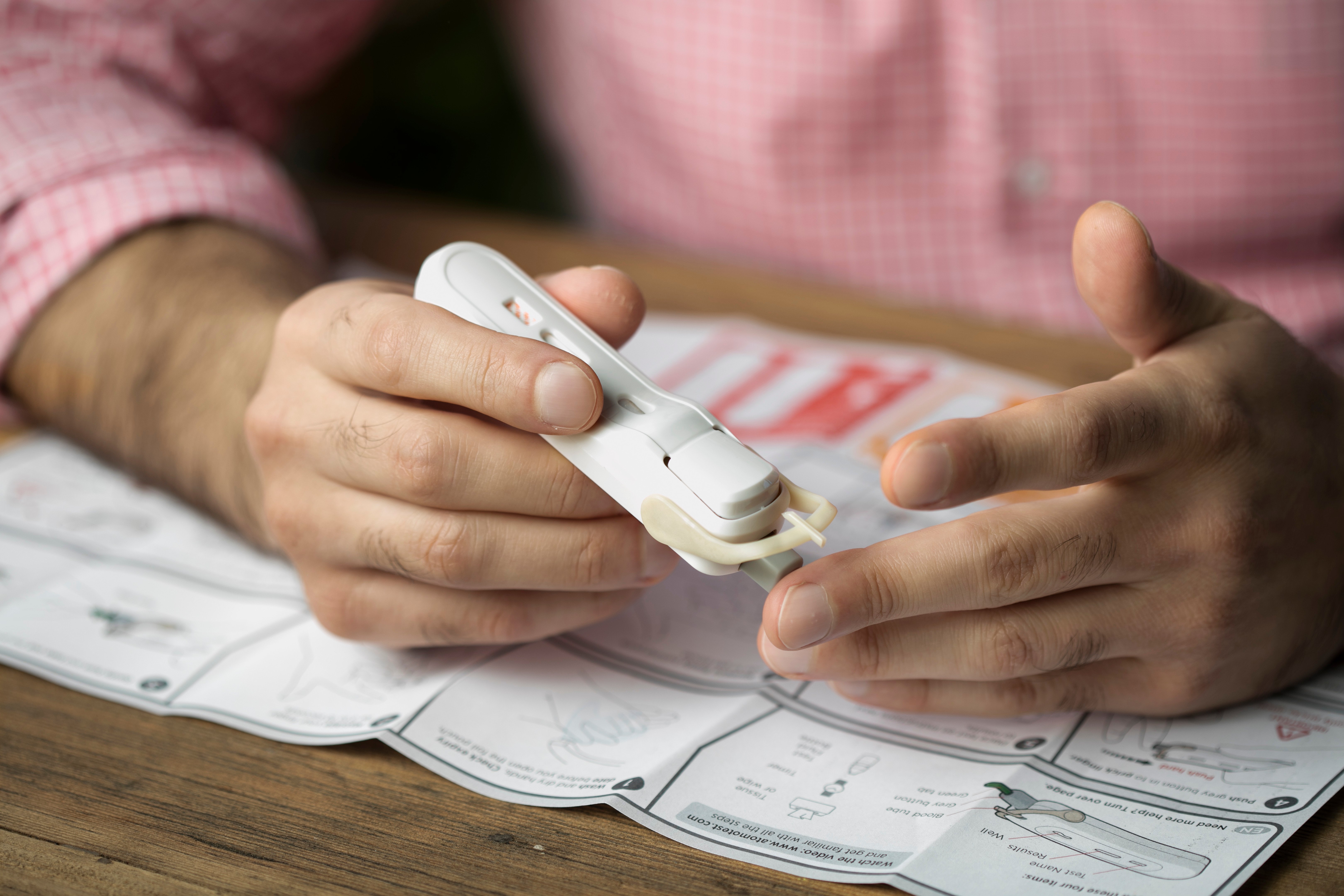Empowering Communities: The Rise of HIV Testing in Public Health

Atomo Diagnostics’ HIV Self Test was first launched in Australia in 2018, however its public adoption was limited by the conservative Australian regulations regarding self-tests that restricted advertising and over the counter retailing opportunities. While the test received strong support from community groups, raising awareness about its availability among the wider public remained difficult. However, the COVID-19 pandemic brought about a major shift in the perception of self-testing, both among healthcare providers and consumers, opening new doors for HIV self-testing as people became more comfortable with the concept of managing their health independently.
By late 2021, Australia's peak medical regulatory body acknowledged the growing shift in public perception to self-tests as rapid antigen testing for COVID-19 became widespread, especially with the surge of the Omicron variant. The regulator responded to this dynamic and introduced changes to the Australian device regulations governing advertising and supply channels options for our HIV Self Test, that had previously limited public awareness of Atomo’s HIV Self Test. For the first time, pharmacies were permitted to retail the test, provided that pharmacists received thorough training. This training ensures they understand the mechanics of the test, could explain how to use it, and were prepared to advise customers on the appropriate next steps if a reactive result was obtained. This marked a significant milestone in making HIV self-testing more accessible to the public.
Growing Awareness and Availability of the HIV Self Test
Adoption of the test by retailers was initially slow as the HIV Self Test represented an almost entirely new product category. Naturally, pharmacy owners and pharmacists were hesitant to take the plunge on a brand new product category despite the clear positive implications the test had for improving public health outcomes. Due to HIV disproportionately affecting members of the men who have sex with men (MSM) community in Australia, uptake of the HIV Self Test was initially most prevalent in LGBT+ hotspots in both Sydney and Melbourne.
In 2022 and 2023, Atomo actively participated in numerous LGBT+ events across Australia, including Cairns Pride Fairday, Pride WA Fairday in Perth, Feast Festival in Adelaide, Midsumma Festival in Melbourne, and Top End Pride Fairday in Darwin, among others. In addition to these community-focused events, Atomo also showcased its HIV Self Test at Australia's two largest pharmacy conferences: the Australian Pharmacy Professional Conference & Trade Exhibition (APP) and the Pharmacy Connect Conference. This busy schedule of events significantly boosted awareness of the HIV Self Test among both retailers and consumers. As a result, consumer sales through Atomo’s e-commerce platform surged, while the number of new pharmacies stocking the test grew rapidly, with month-on-month increases in availability and reach across the country.

Atomo's HIV Self Test stall at the Midsumma Festival in Melbourne, January 2023
The Push for Public Health Adoption
The overarching goal, however, has always been to position HIV self-testing as a crucial element in Australia's public health strategy to virtually eliminate the spread of HIV. While antiretroviral treatment (ART) has proven highly effective in managing the virus and preventing its spread, the key challenge to achieving this goal is ensuring widespread and accessible testing. Without regular and convenient testing, many individuals living with HIV may remain unaware of their status, and as a result, will not seek the life-saving medications they need. This unawareness allows the virus to continue to spread undetected within communities. By making HIV self-testing widely available, especially in hard-to-reach or high-risk populations, Australia could remove this final barrier, empowering individuals to take control of their health and access treatment early, which is essential to halting transmission and moving closer to eliminating HIV entirely.
In the early years of the Atomo HIV Self Test's rollout in Australia, the unwavering support from community organisations such as ACON, NAPWHA, Health Equity Matters (formerly known as AFAO), Thorne Harbour Health, WAAC, and others played a pivotal role in ensuring that the tests reached those most in need. These groups were instrumental in advocating for the accessibility of self-testing, especially within high-risk communities, and helped drive the early adoption of the test.

ACON's promotion of the Atomo HIV Self Test at key LGBT+ events (such as Sydney World Pride in February of 2023, pictured above) has been pivotal in growing awareness of the product among affected populations
The Establishment of Vending Machine Programs
A standout initiative in this early phase was the introduction of vending machine pilot programs, such as the Connect Program by SAMESH in South Australia and the Rapid Program by Queensland Positive People in Queensland. These pilot programs made HIV self-testing kits available in discreet, easily accessible locations, removing many of the social and logistical barriers to testing. By placing the tests in vending machines at universities, sex-on-premises sites and other key locations, these programs helped to normalise the concept of HIV self-testing while ensuring that those who might have avoided traditional healthcare settings could still access testing. These efforts not only facilitated early detection but also demonstrated the innovative ways in which community-led initiatives can support public health goals.

SAMESH's Connect Program has been heavily promoted throughout Adelaide, such as billboard advertising on buses as pictured above
Grindr, NAPWHA and Atomo Combine to Make Testing More Accessible than Ever Before
In early 2023, Atomo Diagnostics, the National Association of People with HIV Australia (NAPWHA), and Grindr began discussions to develop a groundbreaking public health initiative aimed at significantly increasing access to HIV self-testing. This ambitious program was designed to make self-testing widely available to those most at risk of HIV, with the goal of reaching communities that may not engage with traditional healthcare systems.
Under the initiative, NAPWHA offers two free HIV self-tests to anyone who registers on the hivtest.au website, with another two free tests provided six months later to encourage ongoing monitoring. NAPWHA purchases the tests from Atomo using government funding, ensuring the program can operate at scale. Grindr, one of the world’s largest social networking platforms for the LGBT+ community, played a crucial role by agreeing to promote the initiative at no cost. Through Grindr’s extensive reach, the program’s visibility was amplified, making it possible to raise awareness quickly and effectively across the LGBT+ community, particularly among individuals who may not have been actively seeking HIV testing.
This collaboration between a government-funded health organisation, a healthcare technology company, and a popular dating platform represents a major step forward in improving public health outcomes. By removing financial and accessibility barriers, this initiative aims to encourage regular testing, early diagnosis, and ultimately contribute to Australia’s goal of eliminating HIV transmission.

NAPWHA's simple and easy-to-use website is greatly increasing access to HIV self-testing in Australia
Expansion of Vending Machine Programs Nationwide
In mid-2023, Atomo was approached by the New South Wales Ministry of Health (NSW MoH) with a proposal to replicate the success of the vending machine programs pioneered by SAMESH in South Australia and Queensland Positive People (QPP) in Queensland. These programs had shown great promise in increasing access to HIV self-testing, and NSW MoH sought to bring this innovative approach to communities across New South Wales. The result was the launch of the MyTest program in early 2024, providing yet another publicly funded, easily accessible pathway for HIV testing through vending machines placed in strategic locations.
The MyTest program was designed with a clear focus: to reach populations that are typically overrepresented in new HIV diagnoses but underrepresented in testing through traditional healthcare channels. In particular, the program aimed to engage members of the men who have sex with men (MSM) community, especially those from migrant backgrounds, who are often underserved in HIV testing efforts. To target these high-risk groups, the initial rollout of MyTest was concentrated in Western Sydney and major regional centres across New South Wales, where these communities are more prevalent.
Following early successes in increasing testing rates and raising awareness, the NSW Ministry of Health has ambitious plans to expand the MyTest program significantly. By broadening the geographical reach and scale of the initiative, the ministry aims to provide even greater access to HIV self-testing across the state, further strengthening Australia’s efforts to combat HIV and reduce transmission rates.

These eye-catching NSW MoH MyTest vending machines are being rolled out across Sydney and greater NSW
Thorne Harbour Health, a leading health organisation based in Victoria, has also engaged with Atomo in regard to an ambitious vision to expand the HIV self-testing vending machine program across all remaining states and territories in Australia. This initiative aims to transform the vending machine model into a truly nationwide effort, ensuring that no region is left behind in the fight against HIV.
By extending the reach of these vending machines, Thorne Harbour Health seeks to provide easy, discreet, and accessible HIV self-testing options to communities across the country. The expansion plan includes rolling out vending machines to more rural and remote areas, where access to traditional healthcare services may be limited, as well as targeting urban populations that may face barriers to HIV testing due to stigma or lack of awareness.
The ultimate goal is to make HIV self-testing as accessible as possible, ensuring that every individual, regardless of location, has the opportunity to know their status and seek treatment if necessary. This nationwide rollout would mark a major step forward in Australia's public health strategy, helping to reduce new HIV infections and move closer to the goal of eliminating HIV transmission altogether. By partnering with Atomo, Thorne Harbour Health is driving forward a bold and inclusive approach to HIV testing, ensuring that the benefits of self-testing reach all corners of Australia.
The 2024-2025 Federal Budget: The Australian Government Commits to HIV Self-Testing
One of the most pivotal moments in the public health adoption of HIV self-testing occurred in May 2024, when the Australian Government unveiled its 2024-2025 Federal Budget. The announcement marked a significant milestone in the country’s fight against HIV, with the government committing a substantial A$43.9 million to support efforts aimed at eliminating HIV transmission by 2030. This historic funding was designated to enhance various aspects of HIV prevention, testing, training, and public education.
A portion of this financial support was allocated to the public health organisations that have been at the forefront of implementing and expanding HIV self-testing programs, as discussed earlier in this article. This infusion of funds enabled these organisations to continue their crucial work, scaling up existing initiatives and launching new projects to broaden the reach of HIV self-testing. By investing in these programs, the government provided a solid foundation for their sustained operation and growth, ensuring that they can effectively address the needs of diverse communities across Australia.
The commitment from the Australian Government represents a transformative shift in the country’s approach to HIV, reinforcing its dedication to reducing transmission rates and achieving the ambitious goal of ending the epidemic within the decade. This strategic investment underscores the importance of ongoing support for innovative public health initiatives and sets a powerful example of how targeted funding can drive significant progress in tackling major health challenges.

The HIV Taskforce Report, a part of the 2024-2025 Federal Budget, saw the Australian Government commit A$43.9m to initiatives designed to virtually eliminate HIV in Australia by 2023
The journey toward the virtual elimination of HIV in Australia has been significantly advanced by the critical support for HIV self-testing initiatives. The early efforts by Atomo Diagnostics, community organisations, and programs like those pioneered by SAMESH and Queensland Positive People demonstrated the potential of accessible testing solutions. The MyTest program in New South Wales and the ambitious plans by Thorne Harbour Health to expand vending machines nationwide further illustrated the transformative impact of innovative approaches to testing.
However, the most decisive moment came with the Australian Government’s historic A$43.9 million commitment in the 2024-2025 Federal Budget, earmarked to enhance prevention, testing, and education efforts. This substantial investment not only supports the expansion of existing programs but also underscores the vital role of public health support in achieving the ambitious goal of eliminating HIV transmission by 2030. The continued focus on accessible self-testing is crucial, as it empowers individuals to manage their health proactively and helps to reduce transmission rates, bringing Australia closer to a future free of HIV.


